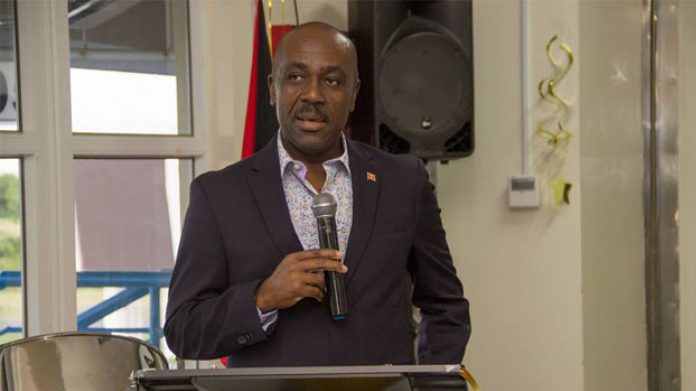By Carlena Knight
Immigration and Foreign Affairs Minister E.P. Chet Greene is hitting back at critics who deem the upcoming amnesty for immigrants to be a political ploy by his government.
Greene, during his budget speech presentation on Tuesday, spoke to the importance of granting amnesty to those who have been in the country for years and have been continuously contributing to its growth.
He mentioned that far too many times, families have been short-changed due to gaps in the system.
“What do you do with a young Jamaican male who has four children in Antigua by an Antiguan mother, has no criminal record, fights every day in terms of his work to feed his children? Is it reasonable that we uproot him from his children and send him packing to Kingston?
“Is it fair that we do not recognise the fact that he has no criminal record and is making a contribution to national development? It is those kinds of cases we hear every day,” Greene said.
Greene went on to say that with the increasing need for a larger labour force, due to a rise in developmental projects, it is a ‘no-brainer’ to help migrants who abide by the laws of the land.
“It is those kinds of situations that call on us to have somber affection and rational thinking and adapt meaningful provisions. Such cases require understanding and flexibility in considering their status.
“Budget 2022 makes it clear that we do not have sufficient labour to satisfy our development needs next year and the years to come. Yet we know we have a pool of labour already in the country – persons who are tried and tested, and who meet the day-to-day requirements and stay out of trouble.
“So, it makes sense for us to grant amnesty to these persons so that they can not only fulfill part of the labour needs, but they can do so without us having to import new workers into the country,” Greene explained.
He concluded that it is these same persons who may become and have already been significant contributors to the country, and it is only right that the Immigration Department administer amnesty to them once they meet the requirements.
“They work hard. They support their families. They worship at the very churches that we worship. They sell and shop at the very supermarkets that we shop and sell.
“Their children play with ours, go to school with ours. Many of their children were either born here or have lived here most of their lives; Antigua and Barbuda for them is home, and amnesty takes in account those realities,” Greene said.
Applicants who have resided in the country for a continuous period of four years, but who have not yet completed seven years, will be granted residency, while persons who have gone over that seven-year mark will be cleared to citizenship.
The Gaston Browne-led administration, on several occasions, has offered amnesty to immigrants who have overstayed their prescribed time, and in 2021, the Prime Minister hinted that they would be offering an amnesty again in the new year.
That news was corroborated in Cabinet a few weeks ago, with government saying they would even waive fees to regularise the status of indigent illegal immigrants.
In 2015, Antigua and Barbuda passed the Immigration and Passport (Amendment) Act 2015 under which illegal immigrants could seek amnesty to have their time in the country extended.
The Citizenship Act requires that a person seeking citizenship be ordinarily resident in Antigua and Barbuda for no less than seven years, of which not less than five years in total must have been spent in the country.
In considering whether an application for amnesty should be granted, the Cabinet would look at whether the applicant has any criminal convictions, his or her family ties in the country where applicable, and any other information it deems relevant to the application.
The amnesty period will run from March 1-April 30.

